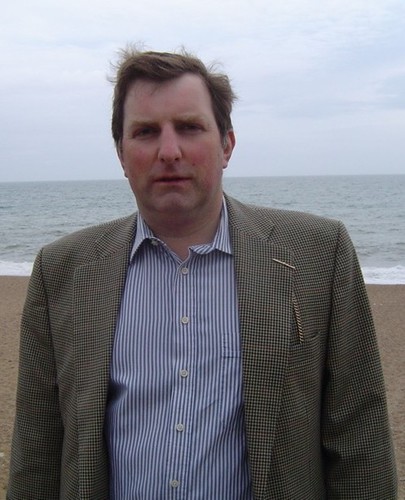The management of human affairs
Some commentators on my 'dark age watch' site described me, in effect, as a fascist. My politics are or should be irrelevant to the observations I offer on these sites, which attempt to be objective statements deriving from a theory of history that is based on study of the past and of historians' writing about it. I do not think of myself as a fascist, because I dislike orthodoxy and I am too insubordinate to belong to any kind of monolithic entity. However, I would be deluded if I claimed to be without bias, and I shall try to explain what views I do hold.
Firstly, I believe in the essential unity of humanity. I do not care too much about the fate of this or that civilisation, including the one I happen to be in. In my view of history, these things are inevitably ephemeral. They serve their purpose for a while, but then it is right that they should go. What is important, I would say, is the future of the human race, to which we all belong.
Secondly, I believe in freedom ahead of equality, and in less government not more. Freedom and equality are incompatible. If people are to be allowed to realise their potential, they will end up unequal, since all have different aptitudes and abilities. If people are to be made equal, there must be an element of compulsion and control over their behaviour. Small government means people being free to achieve; big government is needed to impose and enforce equality. Nevertheless, the situation is not black and white. Some might speak of equality of opportunity versus equality of outcome, where you can have one or the other but not both. Yet take education. Providing free schools is creating equality of opportunity from the perspective of the individual child, but from the perspective of the family or parents it creates equal outcomes, i.e. schooling their children regardless of their own efforts. Equality of opportunity can therefore sometimes require equality of outcome. Unbridled freedom and laissez faire may mean wasting human potential. (Even with free schooling, as Bourdieu argued, education tends to project the values and reproduce the power relations of the existing, unequal social order, so that further interventions may be justified.) Meanwhile, the society that does not assist and support its weaker members not only would be inhuman but is historically very rare. A balance has to be struck. This balance between freedom and equality can only be negotiated through a political process. All I am saying is that my bias is towards the freedom side, or that, other things being constant, I feel a lack of freedom to be less 'fair' than a lack of equality. This perhaps makes me right-wing.
Thirdly, I do not believe that what we call democracy is a good form of government. I am fond of saying, usually after a few drinks, "the universal franchise has been an absolute disaster for this country". Democracy allows power to be obtained by the people who should not have it, while elected politicans tend to bribe the voters with ever-increasing subsidies. Such here-today-gone-tomorrow rulers find it hard to act for the long term, since that requires sacrifice and sustained commitment. By contrast, hereditary rulers, who "own" the societies they govern, treat them thoughtfully. Furthermore, their temperaments are not exclusively those of power-seekers but reflect the full range of human personalities, and, since they do not have to manoeuvre their way to the top, they have no reason to act corruptly. It might be thought that such political forms are unfair, holding back talent, and denying opportunity, but there is always social mobility, and people can participate in power as advisers and agents of the rulers. Again, the situation is not black and white, and a balance must be struck. Absolute despots often destroy their societies (as do democracies though), and it is perhaps best when the monarch rules in conjunction with some form of representative assembly. I would nevertheless commend traditional and hereditary methods of choosing the representatives, rather than any widespread franchise. This might make me an authoritarian.
Fourthly, I reject "environmentalism" along with concerns about overpopulation or running out of natural resources. Environmentalists see humans as a contaminant within the universe, using too much energy and creating too much pollution. I disagree. For me, nothing in the universe has meaning except as it relates to humans and our struggle to find out who we are and why we are here. We are supposed to exploit the universe's resources in pursuing our mysterious quest. I do not worry about exhausting such resources because I consider our stay on this planet to be a brief, initial phase, soon coming to an end. What this universe does not lack are energy, raw materials and room to contain expanding human numbers. As we move out to other planets and later other star systems, concerns about global warming will come to seem utterly irrelevant. It is just that necessity is the mother of invention, and population, resource and environmental stresses are the incentives we need to get off the planet.
These are some of my views. I do not claim that they are consistent, have been well thought through, or add up to any kind of manifesto. It is not my purpose to take up political positions. On the whole, I view the antics of the human race not entirely favourably, yet I cannot help but smile all the same.
